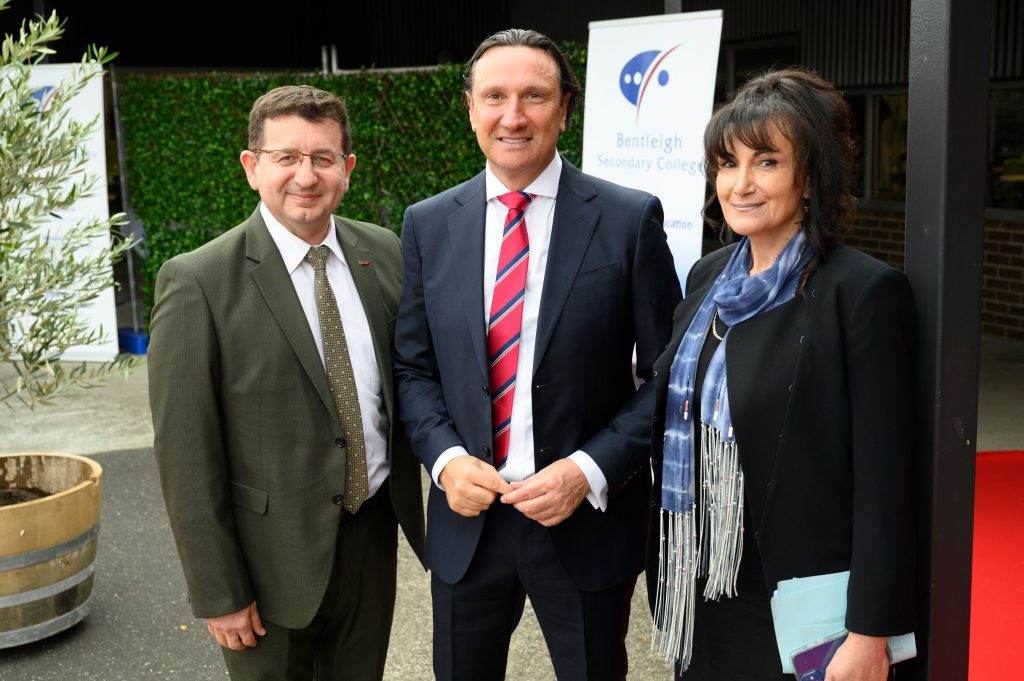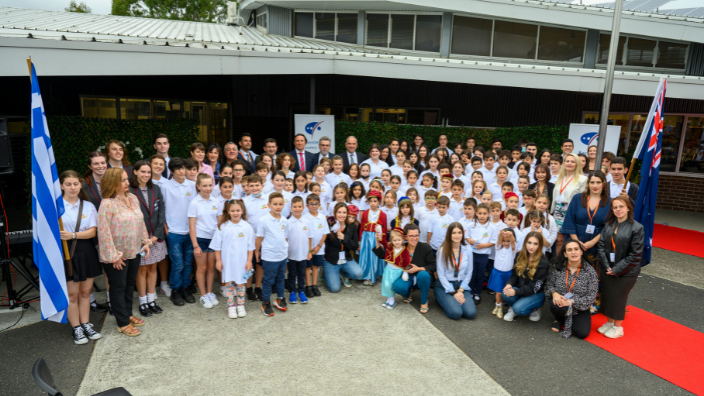Students of the Greek Community of Melbourne’s (GCM) Schools (Bentleigh campus), along with distinguished guests and members from the wider community, marked the 201st anniversary since the start of the Greek Revolution this week.
The GCM’s Greek Language and Culture Schools held the simple yet emotional ceremony at Bentleigh Secondary College.
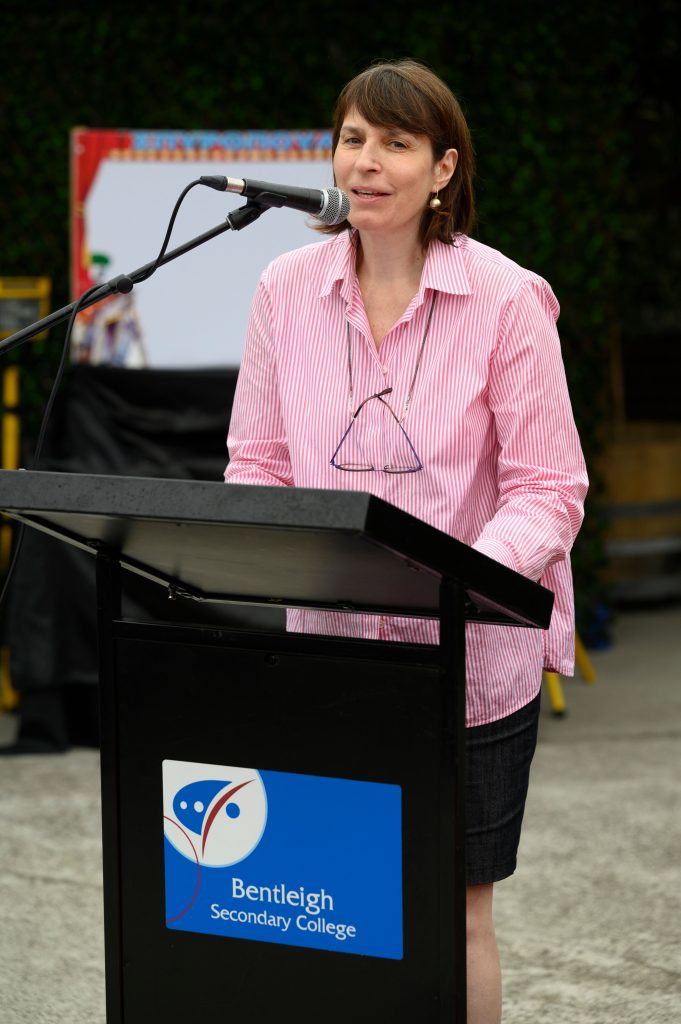
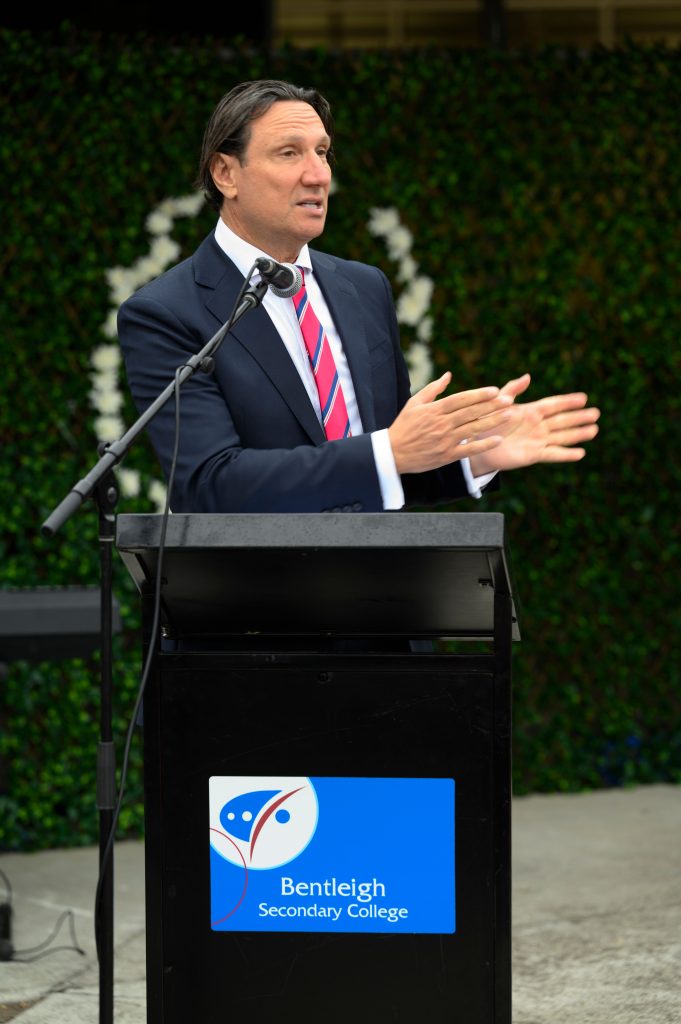
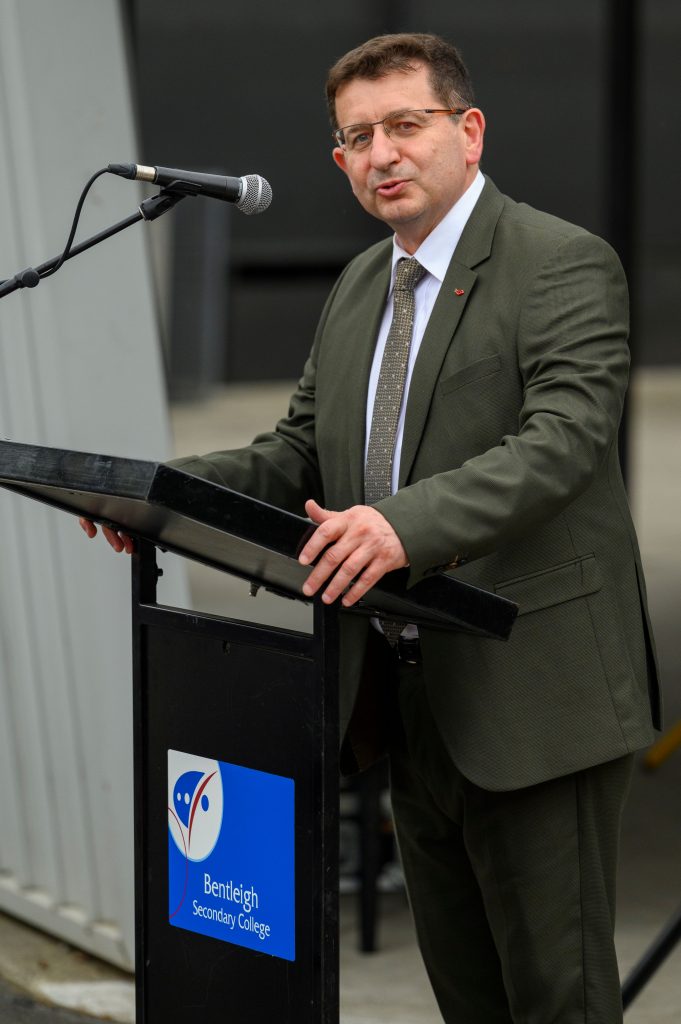
Students attended the event, which included a wreath laying ceremony, speeches to pay their respects to the fallen heroes of Greece and others who fight for their freedom.
Harry Shardey, a Year 12 student of Bentleigh Secondary College, said: “I have a great sense of pride for my heritage. The portion of my family that immigrated are a true example of what it means to be a migrant, their success in their fields and personal characteristics symbolise what it means to be an Australian and is a testament to their ability to adopt a new way of life.”
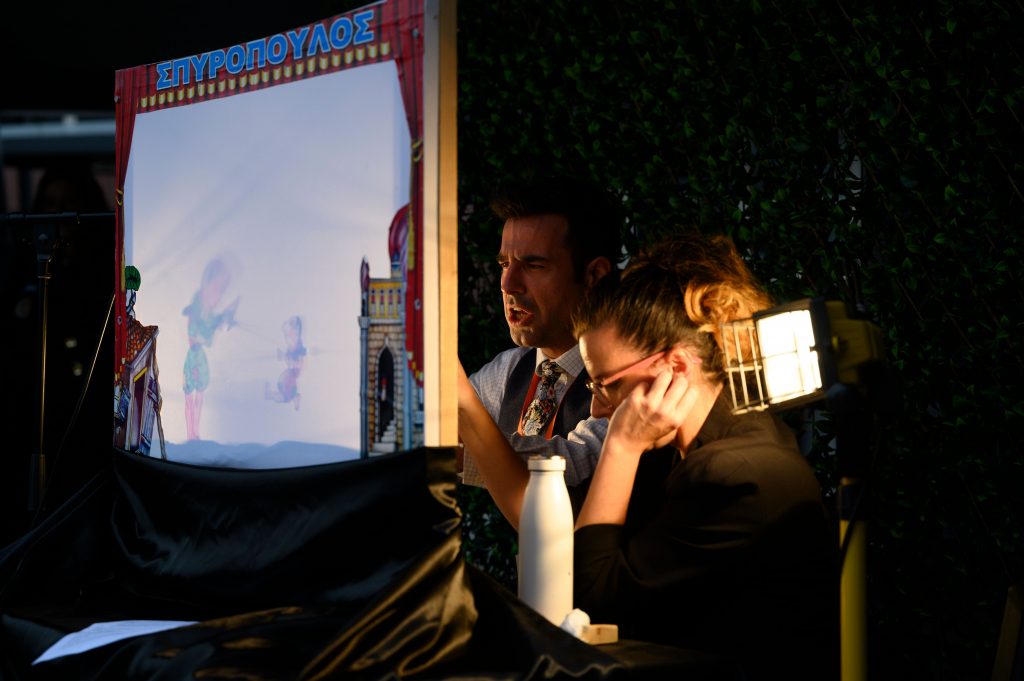
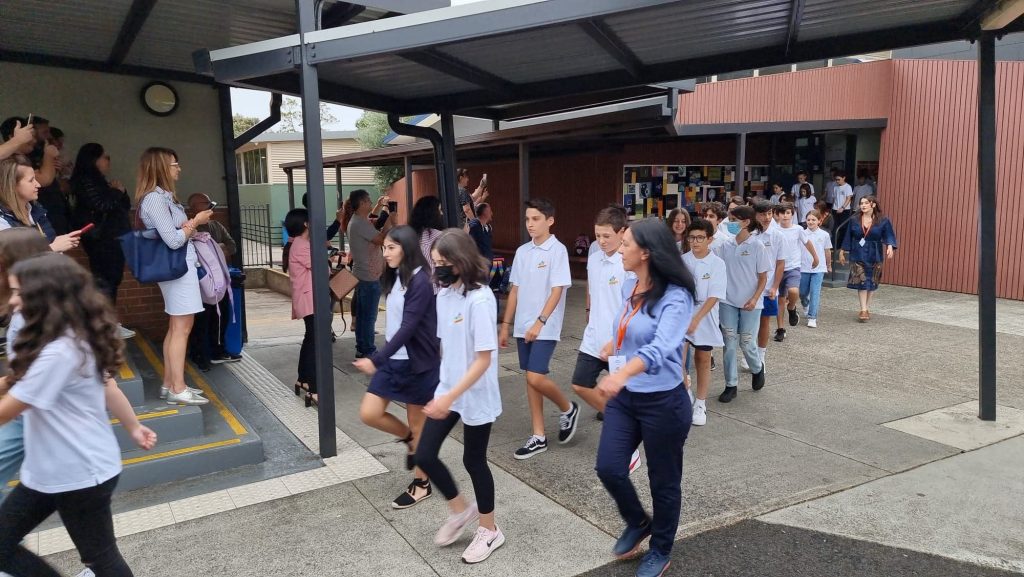
“I asked Papou Papadopoulos what the 25th of March meant to him, and his response was, ‘the 25th of March signifies freedom. Freedom for all’,” Harry added.
Speeches were heard from distinguished guests, Dimitris Linardos on behalf of Emmanouil Kakavelakis Greek Consulate who could not attend the event as he is self-isolating due to COVID-19; Dr Georgia Nikolaidou, Deputy Councillor for Educational Affairs; Andrew Clarke, Bentleigh School Council President; and Dr Nick Dallas Chair of GCM’s Education Committee.
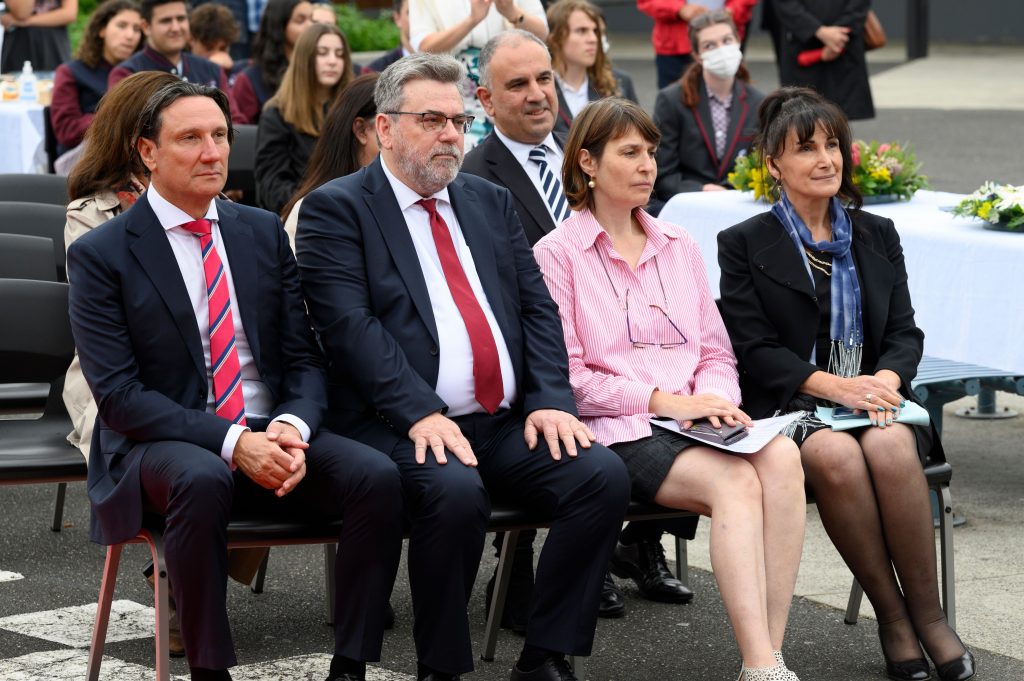
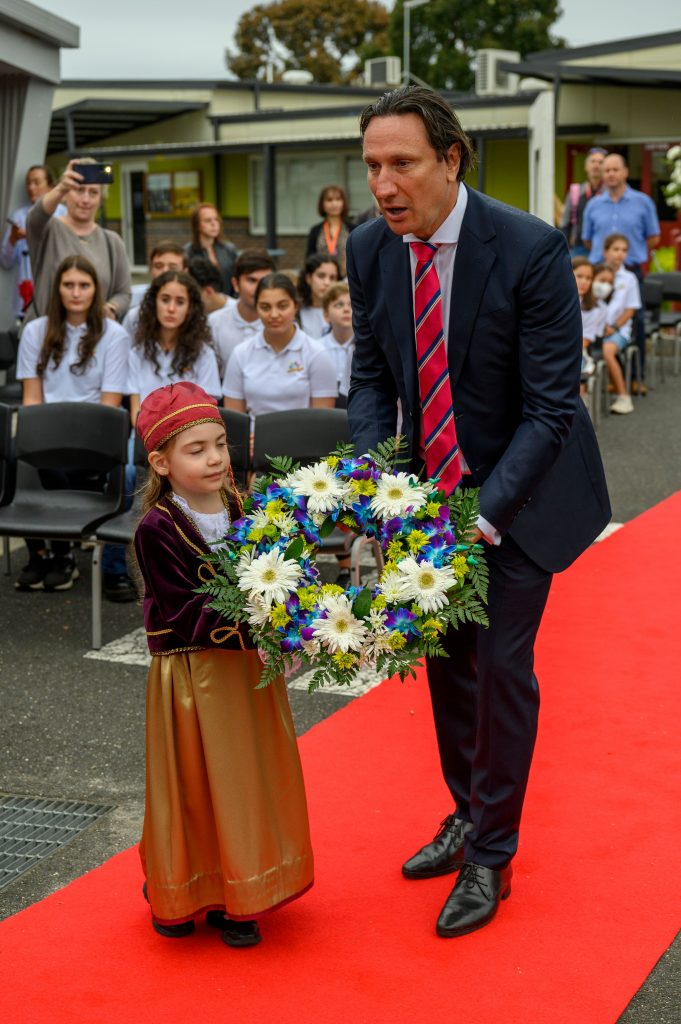
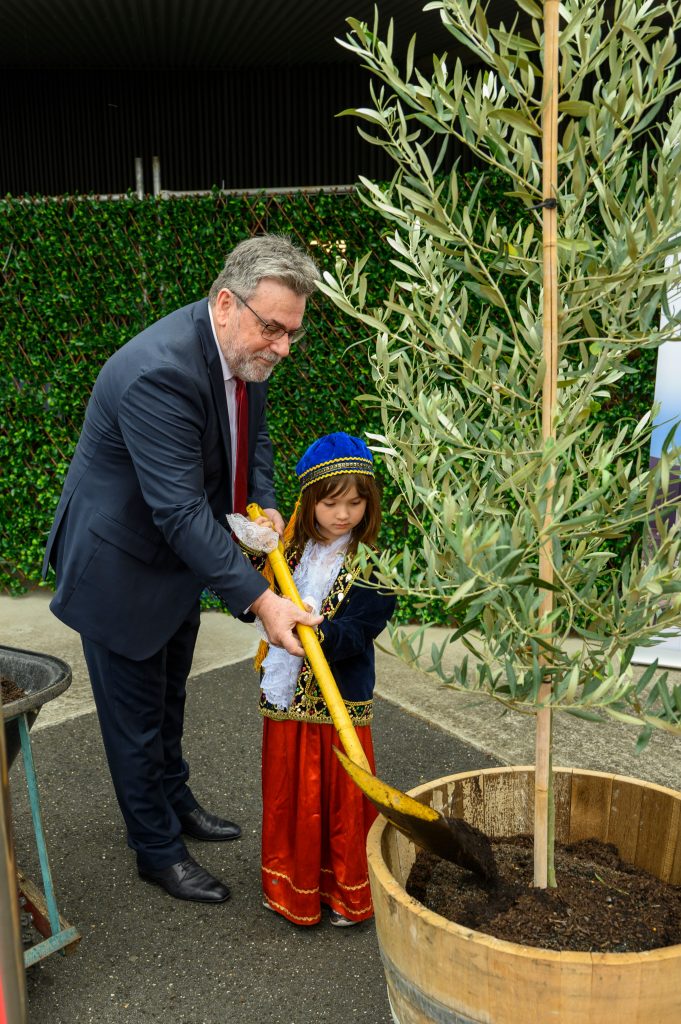
There were also performances by the students in Greek, planting of olive trees to symbolise glory and peace, the placing of white flowers to make a peace sign, and the shadow theatre Karagiosis that delighted the children in attendance.
GCM President, Bill Papastergiadis OAM, concluded the proceedings and stressed the respect between Greece and Australia and the interconnectedness of our world.
“Being part of a multicultural country means we all have a strong connection to other nations by respecting their history and culture. 100 Greek Australians fought in World War I, 2500 Greek Australians fought in World War II and 17,000 Australians went to Greece to support an ally in War World II. A deep connection that is represented here today,” Mr Papastergiadis concluded.
